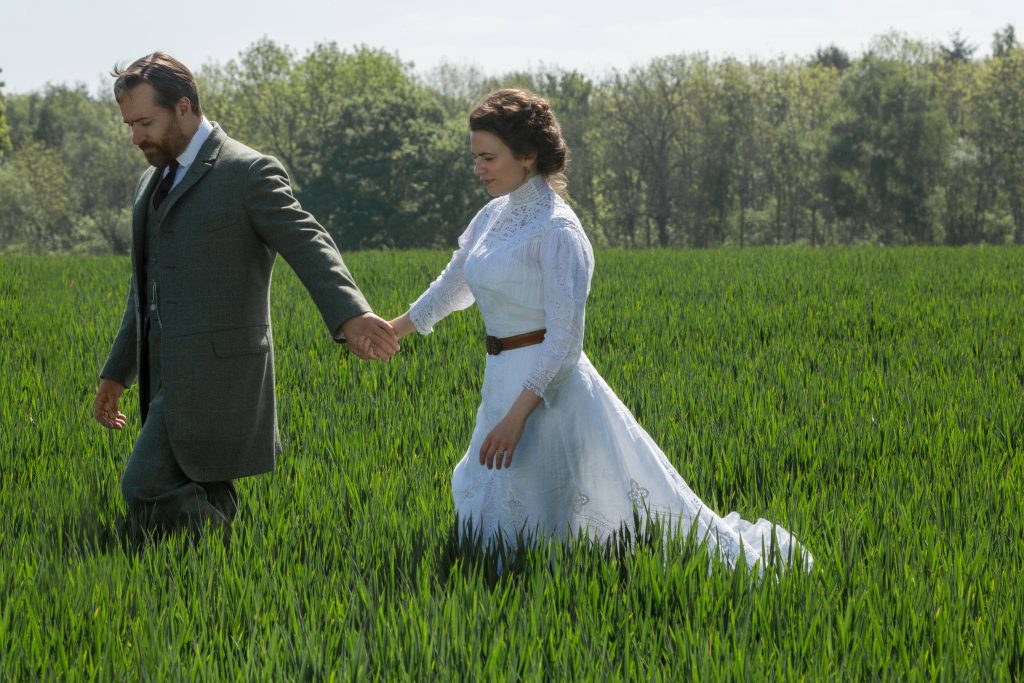Ah the British period piece; a nostalgic look back to a gentler time and place. These cinematic staples are the perfect antidote to the hustle and bustle of modern living as they transport viewers back to a time when everyone and everything was in its proper place and the tea was always served on time...except for when they don't. The 2018 miniseries adaptation of Howards End takes the peace out of period piece as it uses its historical context to explore such contemporary issues as class division, evolving gender roles, and sexual double standards. This version of the classic tale is more drama than costume drama, functioning equally well as both a character study and an exploration of the ways in which the conflicts of the past paved the way for the present.
The story follows the interactions between two very different families as they struggle to navigate the rapidly changing landscape of turn of the century England. The series begins by introducing viewers to the orphaned Schlegel sisters, Meg and Helen, who through their independence and intellectualism personify the modernity overtaking London. The forward thinking pair stand in stark contrast to the traditional Wilcoxes who, despite their immense wealth, are struggling to maintain their place in a changing society. What begins as a friendly acquaintance quickly develops into something more complicated when Helen embarks upon a comically disastrous romance with young Paul Wilcox while Meg forms a fast friendship with Wilcox family matriarch Ruth. Upon Mrs. Wilcox's sudden death revelations are made that will determine the fate of both families as well as that of their mutual acquaintances, the working class Basts.
Adapted from E.M. Forster's classic novel, the miniseries showcases all of the requisite eye candy (enviable costumes and breath taking scenery) associated with a British period piece, but beneath its glossy exterior is at heart a biting social commentary befitting our own era. Through the contrasting depictions of the Schlegels, Wilcoxes, and Basts, the series highlights the class, gender, and ideological conflicts of Edwardian England. As the series unfolds, however, these same conflicts become more then mere historical footnotes as the characters find themselves faced with moral and ethical questions that remain provocative today. None of the characters are either entirely wrong or completely right, and as they maneuver life's grey areas each of them are ultimately forced to question their own values as well as their impressions of each other. By the series' bittersweet conclusion each of the characters has learned valid lessons in life, love, and the need to embrace our differences. The series expertly combines the historical backdrop of the novel with surprisingly fast paced drama, all while offering a bit of sly social commentary that is sure to leave viewers pondering plenty of questions of their own. For a period piece with a contemporary twist pay a visit to Howards End.
The series transports viewers back to the cobble stoned streets of Edwardian London thanks to the superb work of its cast. Julie Ormond lends dept to what easily could have been a stock role by infusing Ruth with warmth and quiet strength. Matthew MacFayden portrays Henry Wilcox with the perfect balance between blunt practicality and guarded vulnerability in his charismatic performance. Tracey Ullman and Alex Lawther prove to be comic delights in their supporting roles as Helen and Margaret's overbearing aunt and eccentric younger brother. Joseph Quinn achingly portrays ambitious but ultimately tragic Leonard Bast. Rosalind Eleaazar shines in her sympathetic portrayal of Leonard's neglected mistress, Jackie. Helen Schlegel leaps off off the page and onto the screen in all of her impulsiveness and vivacity thanks to the work of Phillipa Coulthard. Hayley Atwill is nothing short of brilliant in her nuanced portrayal of the ever ahead of her time Meg.
Over the course of its four episodes Howards End takes viewers on a journey into a past that proves not so very different from our present. Through its expertly crafted script the series more than does justice to its source material as it relates a tale every bit as warm, witty, and thought provoking as the original novel. The cast lend each of their roles a depth and nuance that ensures that each of Forster's many characters are vividly and memorably brought to life. For a viewing experience that you won't want to end join the Schlegels, Wilcoxes, and Basts in Howards End.




No comments:
Post a Comment